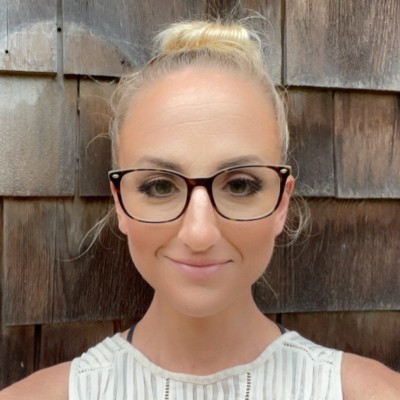There’s never been a better time to launch a career in data science. The number of data science jobs is estimated to grow by 30% this decade, and it’s also one of the most lucrative tech roles, with median salaries for data scientists being around a hundred thousand dollars a year.
But before you can start earning that six-figure salary, you’re going to need to ace your data science interview. And this kind of interview is more than just a show of your technical skills.
We’ve put together this guide, so that you’ll know what to expect from your data science interview, and how to prepare accordingly. Keep reading to learn how to ace the interview and land the job of your dreams.
Are Data Science Interviews Hard?
Preparing for a data science interview is not unlike preparing for other job interviews. It’s even more similar to interviews for other tech roles, so you won’t be faced with anything that your fellow software developers haven’t endured.
Still, there are some idiosyncrasies. Let’s take a look at what you should be ready to handle, and how to best respond.
Data Science Interview Preparation: Where To Start

Research the Role and Company
This is perhaps the most overlooked aspect of preparing for a data science interview. Recruiters are looking to see that a candidate has taken the time to understand what the company does, and that candidates have a sense of how data scientists can contribute.
Start your research in the most obvious place: the company’s website. It’ll give you some basic information about what the company does and what its mission is. If it has an active blog, read through some of the more recent posts. This will also give you an idea of what the company is focused on, and where it’s headed.
Then, you can move on to some more in-depth research. Follow the company’s LinkedIn page to get an idea of its social media presence. You should also connect with or follow some key decision-makers, as this will give you some insights into the company culture and what they expect from employees.
Once you have a sense of the company, you should start researching your specific role. Thoroughly reading the job description is the first step, and you’ll be surprised how much you can gather from the fine print. Noticing small but important details, and then mentioning these in the interview, will reassure recruiters that you’ve done your homework.
You can also follow and research people who already work in data science at the company you’re applying to. Drop them a message on LinkedIn saying that you’re applying for a job there, and that you’d like to know how this job compares to other data science roles.
Review Your Portfolio and Past Projects
While you won’t get hired on your portfolio alone, your data science portfolio is what will get you in the door for an interview. So spend as much time on your portfolio as you would on your resume. And make sure that you tailor your portfolio to the company you’re applying with, showcasing your most relevant projects.
If you don’t yet have anything to include in your portfolio, or want to expand it, then check out some of these data science projects you can add.
Another great way to build an impressive portfolio is by participating in competitions on websites like Kaggle. In fact, there are instances where recruiters have reached out to data science candidates based on what they’ve seen on their Kaggle profile. So make sure that you keep your Kaggle and Github profiles up to date.
Get To Know Other Data Science Students
Meghan Thomason
Data Scientist at Spin
Hastings Reeves
Business Intelligence Analyst at Velocity Global
Abby Morgan
Data Scientist at NPD Group
Brush Up on Foundational Concepts
To ace your data science interview, you’re going to have to demonstrate your technical aptitude. Whether you’re just starting out, or applying for a senior-level position, technical recruiters want to see that you know your basics.
Here are some of the technical concepts that you should review while preparing for your data scientist interview:
- Probability
- Statistics
- Hypothesis testing
- Descriptive and Bayesian statistics
- Dimensionality reduction
Practice Your Technical Skills and Prepare To Be Tested

There are a few technical skills that you should be able to demonstrate in your data science interview. These include:
Statistical Analysis
Most data science is a computational expression of mathematical ideas. So if you’re going to work in data science, you’ll need to have a solid understanding of math and statistical concepts.
You don’t need to have an advanced understanding of statistics, but recruiters will often quiz candidates on some of the basics. So make sure that you have a good understanding of variability, probability distributions, logistic regression, linear regression, and statistical significance.
Working with Data
Unsurprisingly, data scientists have to be adept at working with data. But recruiters want to know that you understand, and are comfortable working with, the entire data science process.
When working with data, the first step is to source it. So in your data science interview, you’ll need to demonstrate that you know how to choose data sources and extract the data that you want. Cleaning data is the next step in the data science process, so be able to demonstrate these skills too. Finally, you’ll have to use tools to analyze your data.
If any of this sounds intimidating, then practice working with data on your own. There are many publicly available datasets to analyze which can help you improve your data science skills.
Programming
Not all data scientists need to have a programming background, but it is very useful to understand programming techniques. Python and R are good choices if you’re new to programming for data science. One way to quickly improve your skills is by going on sites like Kaggle, where you can participate in programming challenges.
Modeling and Visualization
Presenting your findings is an essential part of a data scientist’s job. To do this effectively, you’ll need to translate your findings into laymen’s terms, use charts and visualizations, and be able to explain technical concepts to non-technical stakeholders. So make sure that your data visualization skills are up to par before you walk into your data science interview.
The Salary Discussion
At some point in the data science interview process, you’re going to get asked about your salary expectations. Here are some practice questions to consider if you’re worried about this being awkward:
How Much Are You Expecting To Make at This Job?
Citing how much you were making in your previous role is a good place to start, as it’ll give employers a sense of where you’re coming from, and what your expectations are. You can then build upon this, and say why you deserve to be making more.
Here’s How Much We Currently Pay Our Data Scientists. Does It Work for You?
If the number they cite is amenable to you, then great. But if it’s not, ask if there’s room for them to budge. Make the case for yourself. Tell them why you deserve to earn more, and persuade them that paying you what you deserve will ultimately save them money.
Are You Open to Making Less Than You Did at Your Last Job?
In certain cases, you might be open to such a proposition, especially if you’re going to be working fewer hours. But it’s completely understandable if you aren’t open to making less money, and recruiters will respect your honesty if you tell them this politely.
Questions for the Interviewer
Coming to an interview prepared with a few questions shows recruiters that you’ve researched the company, and that you’re interested in the job that you’re interviewing for. You can ask about typical workweeks, responsibilities, organizational structure, opportunities for growth, or anything really. Just make sure that you don’t ask a question with an obvious answer that can be easily found online.
Mock Interviews
Practicing with a mock interview can help put you at ease, and it will also help you figure out which technical skills you need to brush up on. Enlist a mentor, colleague, or friend to practice with you.
What To Expect From a Data Science Job Interview
Data science interviews usually entail multiple rounds. Here’s what you can expect from each round, and the types of questions that you’ll be asked.
Online Test

Many companies now have an online screening through sites like HackerRank so that they can filter out candidates whose skills don’t meet job requirements. You can expect these to last between an hour and two hours.
Phone Interview
If you pass the first stage, a recruiter will set up a call lasting between 30 minutes and an hour to gauge your analytical skills, career plans, availability, and salary expectations.
Technical Interview
This is when you will be tested on your core data science knowledge and general technical knowledge. This can be something like a data challenge that you have to complete over a week or two. When interviewing for more advanced roles, you might get asked about machine learning or statistical modeling.
HR Interview
This is where you’ll be tested on your soft skills and communication skills. At this stage, they’re really just ensuring that you’d be a good fit for the company culture.
Data Science Leadership Team Interview
A data science leadership team interview is more common with senior roles. In this round, you’ll interact with other senior leaders so that they can make sure you’re a good fit for the team. Sometimes, this is done onsite so that everyone can get a feel for what it would be like to work together.

FAQs About Preparing for a Data Science Interview
What Should You Study Before a Data Science Interview?
Make sure that you can answer questions relating to statistics, probability, data wrangling, and some programming concepts. Also, make sure that you’re ready to discuss your portfolio in detail.
How Long Should I Prepare for a Data Science Interview?
Give yourself at least a month to brush up on your technical skills, study common questions, and prepare your portfolio. Use the final week to practice sample questions that you’ve found the most challenging throughout your preparations.
How Many Rounds of Interviews Are Common for a Data Science Job?
Most data science interviews usually go for three to five rounds, and cover technical knowledge, culture fit, and soft skills.
Since you’re here…Are you interested in this career track? Investigate with our free guide to what a data professional actually does. When you’re ready to build a CV that will make hiring managers melt, join our Data Science Bootcamp which will help you land a job or your tuition back!






